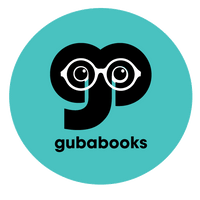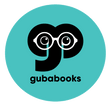Perspectives on Identity
I grew up in a place where everyone around me had the same customs, culture, language and ideologies in life. I hardly gave a thought to what my identity was because it was already strongly defined through the numerous shared experiences of my peers. And these experiences matched what I saw at home as well. This will most likely not be the case for my daughters. Having lived all their lives in Canada and now the USA, they will face situations with their peers that might make them feel different. It might make them question what they see at home. And as they get older, it might make them ponder about their identity.
So what really is their identity? This summer we started to work with a bright young lady who kindly offered her own perspective on the subject.

"Hi! I’m Zaara and I’m an intern at Guba Publishing! So a little about me, I’m a 17 year old Bengali American who lives in Virginia. I’m a senior who is beginning to apply to colleges this fall which is a stressful experience in itself. But what makes it more intense is that colleges are always asking applicants to tell them who they really are. But how do I really convey the many different identities as a woman and as a Muslim and especially as a Bengali that adds up to me?
I heard about Guba Publishing from my aunt and the idea of the company really spoke to me because, even though I can understand spoken Bangla and speak conversational Bangla to my family and friends, I can’t read it. I’m illiterate in my mother tongue and attempting to learn it has been an uphill battle from day one. When I was eight I spent the summer in Bangladesh and my grandmother got me a tutor and while she and my parents encouraged me to retain what I learned after I returned home, the stacks of Bangla books collected dust on the highest shelf.
I am a first generation American. A lot of the customs that my parents grew up with seem outdated to me like not eating with your left hand and other superstitions that they believe but to me, without the constant cultural implications of them, seem odd. I’m hoping that initiatives like Guba Publishing, that makes learning Bangla easy and approachable and opens up a platform to speak about different perspectives, will help me bridge the cultural gap between me and my parents.
- Zaara Masud"

Fork vs. chopsticks vs. hand
When I read Zaara's post, it reminded me of a question my older daughter once asked me. She asked why I eat rice and lentils (bhaat daal) with my hand but I eat fried rice with chopsticks and other rice dishes with a fork? Which one is right, she asked.

